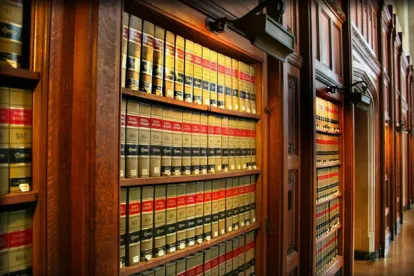The U.S. Court of Appeals for the Ninth Circuit appears to have rebuffed aspects of the Second Circuit's recent effort to narrow liability for insider trading. The Ninth Circuit's decision today in United States v. Salman holds that insiders can engage in insider trading if they disclose material nonpublic information with the intent to benefit a trading relative or friend, even if they do not receive a pecuniary gain or other quid pro quo type of benefit in exchange for the disclosures.
The Ninth Circuit's opinion was written by Judge Jed Rakoff, a Senior District Judge for the Southern District of New York, who sat by designation on the Ninth Circuit panel – and whose recent opinions seem to have struggled with the Second Circuit's decision in United States v. Newman. The Ninth Circuit's decision might now create a circuit split – and enhance the chances that the Government will seek and perhaps obtain a writ of certiorari from the Supreme Court in Newman and/or Salman.
Factual Background
The Salman case arose from an alleged insider-trading scheme involving members of an extended family. The tipper, who worked for an investment bank, had allegedly provided confidential information to his brother about upcoming transactions involving the bank's clients. In so doing, the tipper had known that his brother would trade on the information. The brother then tipped Salman, whose sister had become engaged to and later married the tipper. The brother eventually pled guilty to insider trading and testified for the Government against Salman.
The evidence at trial showed that the tipper and his brother had enjoyed "a close and mutually beneficial relationship." The tipper testified that he "'love[d] [his] brother very much' and that he gave [him] the inside information in order to 'benefit him' and to 'fulfill[] whatever needs he had.'" The evidence also showed that Salman had been aware of the brothers' "close fraternal relationship." The jury convicted Salman, and the Ninth Circuit affirmed the conviction.
Ninth Circuit's Decision on Insider-Trading Liability
The Ninth Circuit based its ruling on a straightforward reading of the Supreme Court's 1983 decision in Dirks v. SEC, which had established the framework for tippee liability. The Supreme Court held in Dirks that tippee liability depends on tipper liability – and that a tipper breaches a fiduciary duty by disclosing confidential information only if he or she benefited directly or indirectly from the disclosure. The Court defined the "personal benefit" that constitutes the insider's breach of duty as including "a pecuniary gain or a reputational benefit that will translate into future earnings." "The elements of fiduciary duty and exploitation of nonpublic information also exist when an insider makes a gift of confidential information to a trading relative or friend."
The Ninth Circuit held that the preceding sentence governed the Salman case. The tipper's "disclosure of confidential information to [his brother], knowing that [the brother] intended to trade on it, was precisely the 'gift of confidential information to a trading relative' that Dirksenvisioned." The court also found sufficient evidence that Salman had known the initial source of the tip and "could readily have inferred [the tipper's] intent to benefit [his brother]."
Disagreement with the Second Circuit
The Salman decision would probably have ended there, but for Salman's contention on appeal that the Second Circuit's Newman decision required a more rigorous interpretation of the type of personal benefit needed to establish a breach of duty. The Ninth Circuit observed that "Newman is not binding on us," but the court did not want to "lightly ignore the most recent ruling of our sister circuit in an area of the law that it has frequently encountered." The Ninth Circuit thus took on Newman – and appears to have disagreed with the Second Circuit's construction of the personal-benefit requirement.
As the Ninth Circuit explained, the Second Circuit had held in Newman that, "although the 'personal benefit' standard is 'permissive,' it 'does not suggest that the Government may prove the receipt of a personal benefit by the mere fact of a friendship, particularly of a casual or social nature.'" Rather, "to the extent that 'a personal benefit may be inferred from a personal relationship between the tipper and tippee, . . . such an inference is impermissible in the absence of proof of a meaningfully close personal relationship that generates an exchange that is objective, consequential, and represents at least a potential gain of a pecuniary or similarly valuable nature'" (emphasis added by Ninth Circuit).
Based on this language, Salman argued that the direct tippee's familial relationship with his tipper-brother was insufficient to demonstrate that the tipper had received a benefit. Instead, he contended, the tipper had to have received "at least a potential gain of a pecuniary or similarly valuable nature," and the trial record did not contain evidence of such a benefit.
The Ninth Circuit rejected that argument, holding that, "[t]o the extent Newman can be read to go so far, we decline to follow it. Doing so would require us to depart from the clear holding of Dirks that the element of breach of fiduciary duty is met where an 'insider makes a gift of confidential information to a trading relative or friend.'" The court noted that Newmanitself had quoted an earlier Second Circuit decision (United States v. Jiau) recognizing that the "'personal benefit is broadly defined to include not only pecuniary gain, but also, inter alia, . . . the benefit one would obtain from simply making a gift of confidential information to a trading relative or friend.'"
The Ninth Circuit added that, if evidence of a desire to benefit a friend or relative could not suffice to establish a tipper's breach of duty, insider trading could proliferate: "a corporate insider or other person in possession of confidential and proprietary information would be free to disclose that information to her relatives, and they would be free to trade on it, provided only that she asked for no tangible compensation in return."
Accordingly, the Ninth Circuit held that "[p]roof that the insider disclosed material nonpublic information with the intent to benefit a trading relative or friend is sufficient to establish the breach of fiduciary duty element of insider trading."
Salman's Implications
The Salman decision appears to create a split between the Ninth and Second Circuits on the personal-benefit requirement that lies at the core of insider-trading liability. One might be able to reconcile the two decisions based on the Ninth Circuit's reference to Newman's quotation from the Jiau case, which had recited the standard of "making a gift of confidential information to a trading relative or friend." One might also be able to distinguish the two cases from each other based on the fact that the direct tippee in Salman was a close family member (a brother), while the direct tippees in Newman had not shared such a close relationship with their tippers. An inference of a personal benefit might be more permissible in the former situation than in the latter. Nevertheless, it is difficult not to conclude that the Ninth Circuit was uncomfortable with the Second Circuit's narrower interpretation of Dirks.
The Salman decision could come as a welcome windfall to the United States Attorney's Office for the Southern District of New York, which has been wrestling with the decision whether to seek certiorari in the Newman case. After having unanimously lost its petitions for panel and en banc review in the Second Circuit, the Government sought and received an extension of time until August 1, 2015 to file a certiorari petition. The Government might now argue that an actual or potential circuit split exists between the Second and Ninth Circuits and that the Supreme Court should grant review.
It is a delicious irony that Judge Rakoff, whose recent decisions appear to have chafed at the strictures imposed by Newman, was involved in getting another circuit to disagree with the appellate body governing his home court in the Southern District of New York. Being a Senior Judge with travel privileges apparently has some advantages.





 />i
/>i
